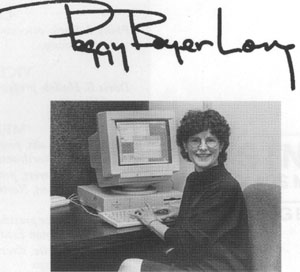 |
Home | Search | Browse | About IPO | Staff | Links |
 |
Home | Search | Browse | About IPO | Staff | Links |
 Who is winning the presidential debates? Scholars say the voters are by Peggy Boyer Long We went to press with this October issue just as the two major presidential candidates were settling on dates, places and formats for their nationally televised debates. It's likely that the first of these critical election-year events will be behind us by the time you sit down to read Illinois Issues. So we can't pretend to know who "won" and who "lost" the initial matchup. And that's just fine with us. As a monthly, we face the challenge, and considerable luxury, of assessing campaigns from a more studied perspective. Of course, we urge you to watch all of the debates. That's because, contrary to prevailing wisdom, they can provide important information about candidates and policy questions. Scholars conclude that viewers of these quadrennial dramas are quite capable of gleaning what they need. They can, and do, screen out much of the distracting punditry. And they can, and do, make up or even change their minds. This, despite cynicism in some quarters that debates are too scripted and too spun to have meaning. Kathleen Hall Jamieson is one who believes they do have meaning. She's a political communications scholar who served on a 1986 task force that spurred creation of the Commission on Presidential Debates. And she argues that while debates do not usually determine the outcome of a presidential campaign, viewers' knowledge of the candidates and the issues does improve. This is not the case for nonviewers. Jamieson directs the Annenberg Public Policy Center at the University of Pennsylvania, and she has become, possibly to her surprise, one of those much-sought-after campaign pundits she writes so much about. Nevertheless, her conclusions are well-grounded in numbers. In 1996, the center replicated the findings of a 1992 post-debate study conducted by other scholars that found a 30 percent improvement in viewers' knowledge. "The reason is simple," she writes in her latest book, Everything You Think You Know About Politics ... And Why You're Wrong. "Debates contain extended amounts of issue and biographical information delivered in head-to-head fashion that invites comparison and contrast. And all of this occurs in a climate in which the people with whom we come into even casual contact feel comfortable asking what we thought of a debate. This sort of contact -- which is in some ways akin to a rise in talk about the Superbowl the Friday before and the Monday after -- involves the sort of conversation in which information learned is moved from short- to long-term memory." But Jamieson posits another reason why even highly educated voters gain knowledge from debate viewing: "More than half of the twelve [issue] positions [covered in the debate] were either unreported or underreported from September 1 through October 9, 1996." And she takes the networks to task for announcing the "winners" and "losers" in instant post-debate surveys. How, she asks rhetorically, do they locate and interview a national random survey of voters so quickly? Her answer is that they don't really. Individuals are contacted in advance and asked if they would be willing to be interviewed after the debate. More important, those individuals are chosen in a random sample weighted to reflect candidates' predebate standings in the polls. Thus, those samples are not a random selection drawn from the universe of all those who watched the debate. And because, Jamieson notes, "extended forms of communication reinforce existing dispositions, those who favored the front-runner are likely to judge that person the winner," barring a major flub by that candidate. In general, she concludes, "the way to increase the likelihood of 'winning' a presidential general-election debate is to be ahead in the published polls on which the sampling frame for the debate is based." We couldn't resist checking a number of Jamieson's conclusions while preparing this issue. Her center has conducted studies, as well, on the impact of paid television ads, polling and television news. And on whether elections actually matter. No surprise, she concludes that they do. 4 | October 2000 Illinois Issues www.uis.edu/~ilissues
|